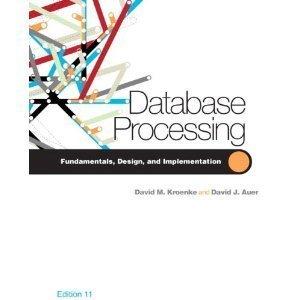Question
Please, write an addition to the following python code that will generate a 2d weight space contour plot: import matplotlib.pyplot as plt import numpy as
Please, write an addition to the following python code that will generate a 2d weight space contour plot:
import matplotlib.pyplot as plt
import numpy as np
from sklearn.model_selection import train_test_split
def sigmoid(sop):
return 1.0/(1 + np.exp(-sop))
def error(predicted, target):
return np.mean(np.power(predicted - target, 2))
def error_predicted_deriv(predicted, target):
return 2 * (predicted - target)
def activation_sop_deriv(sop):
return sigmoid(sop) * (1.0 - sigmoid(sop))
def update_weights(weights, grads, learning_rate):
return weights - learning_rate * grads
# Generate data
mean = np.array([-0.4, -0.8])
mean1 = np.array([0.4, 0.8])
cov = np.array([[0.84, 0], [0, 0.036]])
x1 = np.random.multivariate_normal(mean, cov, 50)
x2 = np.random.multivariate_normal(mean1, cov, 50)
data = np.concatenate((x1, x2))
# Generate desired output
d = np.concatenate((np.zeros(50), np.ones(50)))
# Split data into train and test sets
X_train, X_test, d_train, d_test = train_test_split(
data, d, test_size=0.2, random_state=0
)
# Assign labels to the data points
labels = np.zeros(100)
labels[:50] = -1 # class 1
labels[50:] = 1 # class 2
plt.scatter(data[labels==-1, 0], data[labels==-1, 1], c='r', label='Class 1')
plt.scatter(data[labels==1, 0], data[labels==1, 1], c='b', label='Class 2')
plt.legend()
plt.show()
# Initialize weights
weights = np.random.rand(2)
# Train the network
max_iterations = 10
learning_rate = 1.5
MSE = []
train_pred = []
test_pred = []
for iteration in range(max_iterations):
# Forward Pass
sop = np.dot(X_train, weights)
predicted = sigmoid(sop)
err = error(predicted, d_train)
# Backward Pass
grad_predicted = error_predicted_deriv(predicted, d_train)
grad_sop = activation_sop_deriv(sop)
grad_weights = np.dot(X_train.T, grad_predicted * grad_sop)
# Update weights
weights = update_weights(weights, grad_weights, learning_rate)
print("Updated weights:", weights)
err = error(predicted, d_train)
MSE.append(np.mean(err))
if iteration % 100 == 0:
print(f"Iteration {iteration}: Error = {err}")
log_MSE = np.log10(MSE)
print("Final weights:", weights)
plt.plot(range(10), log_MSE, label='Log MSE (dB)')
plt.xlabel('Iteration')
plt.ylabel('Log MSE (dB)')
plt.legend()
plt.show()
Step by Step Solution
There are 3 Steps involved in it
Step: 1

Get Instant Access to Expert-Tailored Solutions
See step-by-step solutions with expert insights and AI powered tools for academic success
Step: 2

Step: 3

Ace Your Homework with AI
Get the answers you need in no time with our AI-driven, step-by-step assistance
Get Started


